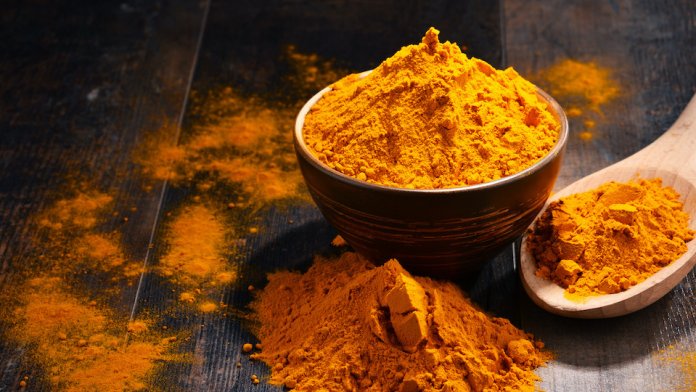About half of all patients who are admitted to intensive care with coronavirus die. That’s sobering news. But now there may be a way to improve those odds. The key, experts say, may lay in stopping lung inflammation from occurring. So, while scientists’ race to find a cure for COVID-19, there just might be something preemptive you can do to strengthen your lungs. Here’s why now more than ever, you should include turmeric in your diet.
Good vs. bad inflammation
To understand why turmeric may be useful as a preemptive to support lung health, you first need to understand how positive and negative inflammation impacts your health. Inflammation is not all bad. Under normal circumstances, it’s your body’s way of fighting off foreign invaders and healing injuries. So, when your body is attacked by a virus like COVID-19, inflammatory white cells are the first response to that infection. The white cells produce natural chemicals called cytokines, which can kill the invading germs.
But inflammation is a delicate balance. Problems soon arise when it gets out of control and becomes chronic. When this happens, inflammation stops working for you and instead begins to wreak havoc on the body. The result? Severe damage and even death.
So, what causes inflammation to get so out of control?
Certain conditions like obesity tilt the scale in more ways than one. An overabundance of inflammatory cytokines is linked to conditions like heart disease, stroke, arthritis, asthma, blindness, cancer, diabetes, and more. It may even cause autism, and mental illness suggests Vanderbilt University School of Medicine. With this in mind, you can now see why the elderly or people with underlying health conditions may fare worse with COVID-19 and have trouble recovering.
Experts know that coronavirus is mainly a respiratory virus, and most of the injury happens in the lungs. Whenever a virus invades the lungs, it activates the immune system, causing inflammation to fight the virus and keep it at bay. Lung inflammation affects lung tissue and the airway. The inflammation can be acute (short-lived) or become chronic. And of course, when it becomes chronic, normal cells in the lungs and airways become damaged.
How to keep inflammation at bay — particularly as a preventative?
According to research published in Science Direct, COVID-19 produces an extraordinarily high and uncontrolled release of pro-inflammatory cytokines — basically destroying the immune system. In coronavirus pneumonia, experts found that this inflammatory cell invasion leads to acute lung injury, acute respiratory distress syndrome (ARDS), and sometimes death.
So, it’s imperative to help keep inflammation under control. But how do you do that — especially as a preventative for coronavirus complications? Well, first and foremost, a healthy diet and lifestyle are always your best course of defense against chronic inflammation. Next, add turmeric to your diet. Mounting evidence shows that adding turmeric to your health regime is a natural way to help fight inflammation.
Supplement with turmeric to support immunity and fight inflammation
Turmeric is a warm, bittersweet spice often used to flavor or color Asian cuisine, butter, mustard, and cheeses. Curcumin is turmeric’s main phytochemical. This compound is what’s behind turmeric’s antioxidant, anti-inflammatory, and anti-carcinogenic properties. Turmeric helps keep inflammation in your body low so that you may have a better chance of fighting the coronavirus infection. In fact, a study published in the journal PLOS reports turmeric has been used to treat arthritis, cancer, digestive ailments, liver conditions, and even ARDS — the most severe form of acute lung injury.
There are a few ways to ingest turmeric: As a spice, in food, or a beverage (particularly turmeric milk), in a powdered supplement or as an extract. In India, the average diet contains about 2,500 mg of turmeric per day. That’s about 60 to100 mg of curcumin.
Turmeric spices contain around three percent curcumin, compared to 95 percent curcumin found in extracts. Supplements also have a higher percentage of curcumin, much more than you would get by simply sprinkling it on your food.
Add a little pepper to aid absorption
All in all, whatever form of turmeric you decide to take, consider combining your supplement with a little black pepper – maybe two or three peppercorns. The reason: Curcumin only makes up about five percent of turmeric and can easily be excreted by the liver.
Black pepper contains the compound piperine. According to research, piperine has been shown to increase curcumin absorption by 2000 percent. You can also increase the absorption of turmeric by consuming the spice with healthy fat such as, avocado, nuts, nut butter, or fish. That way, the curcumin will directly be absorbed into the bloodstream by avoiding the liver.
Please note: Turmeric supplements can interact with some medications such as blood thinners and diabetes medications. Therefore, consult with your healthcare practitioner before taking turmeric.
Currently there is no known cure for coronavirus, and vaccines may be years away. In the meantime, all-natural turmeric can support your immune system during coronavirus, and perhaps help reduce the severity of the disease.
Disclaimer: “None of this has been proven to prevent, treat or remedy COVID-19, these are just things to consider”
-The UpWellness Team


